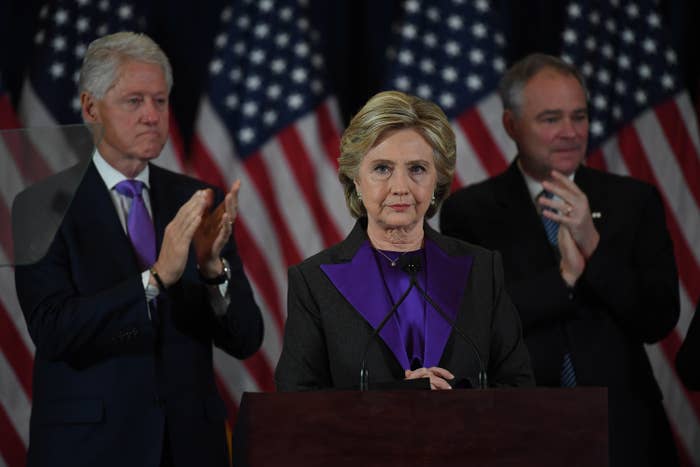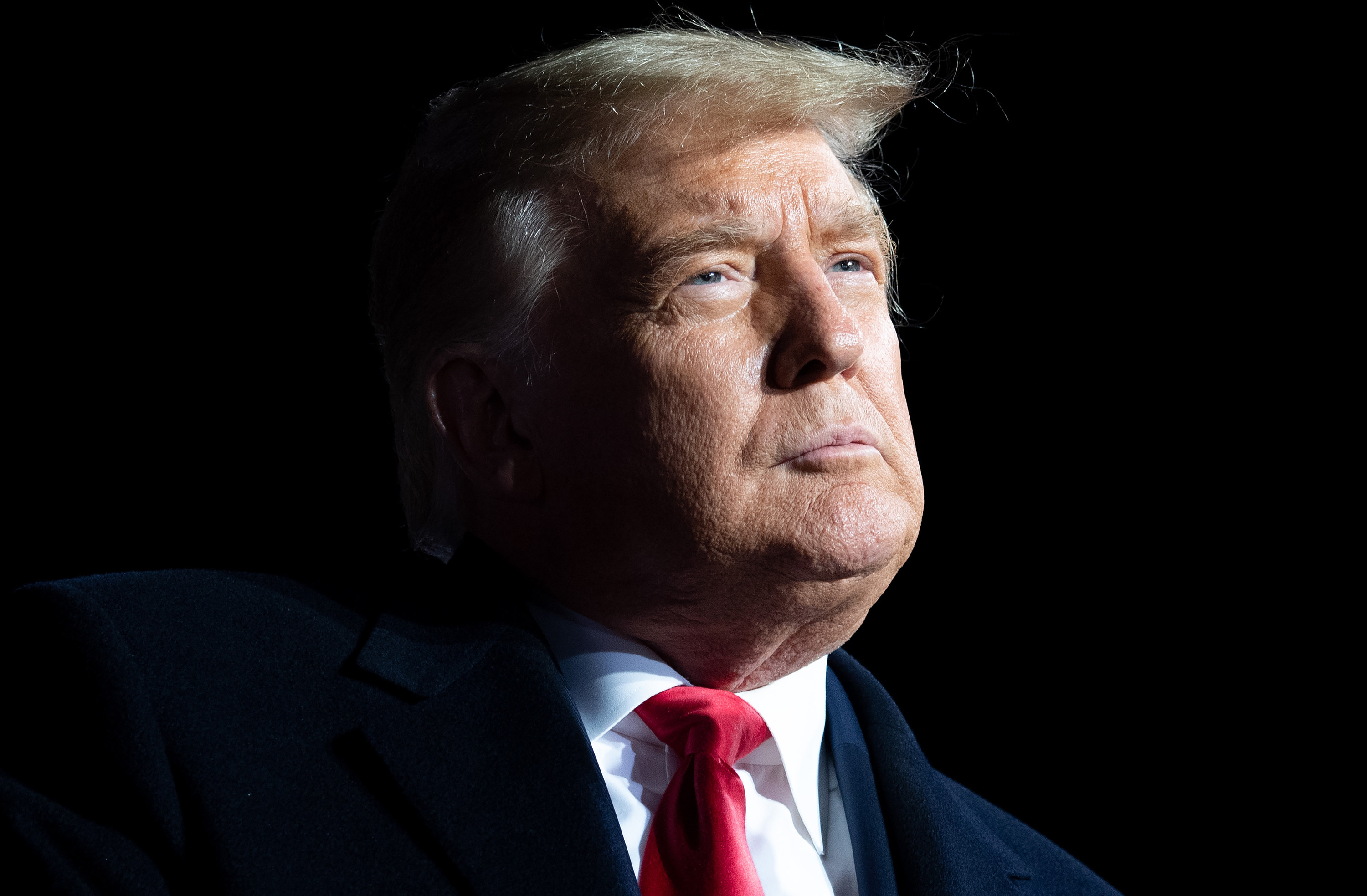
By now, it’s clear that President Donald Trump is not going to concede that he lost the 2020 election. The very thought of a Trump concession always seemed absurd, given everything we know about him — but now, weeks into his campaign’s failing legal efforts to challenge the results, when there is no path for him to successfully overturn President-elect Joe Biden’s win, we’ve firmly arrived at the reality that he is not going to concede.
Here’s the closest we got: “He won,” a tweet of Trump’s began on Sunday, referring to Biden, before continuing to falsely claim that the win was rigged. He followed up the tweet, “I concede NOTHING!” — leaving most people to formally give up on an admission of defeat.
But just because we have to accept that the concession is not coming doesn’t mean it should go unexamined. Presidential concession speeches have a big job, which is to delicately unite the electorate. The absence of one after such a bitter election means that no matter what happens, for the next four years, the wounds of 2020 will remain exposed and bleeding.

In 2016, Hillary Clinton did not have a concession speech ready. She wrote in her book, 2017’s What Happened, that as results came in, the mood dampened in her camp, and Trump’s shock victory snuck up on her — on everyone, really — and left her feeling “numb.” The Associated Press didn’t formally call the election for Trump until well into the night, at 2:30 a.m. But we know from Clinton’s book that much earlier in the night, around 11 p.m., a Barack Obama aide called Robby Mook, Clinton’s campaign manager, and said the then-president wanted her to concede.
Clinton pushed back, she wrote, because she did not have the right words to say to the little girls who looked up to her. Later that night, Obama convinced her to make the call to Trump and concede the race without delivering a speech. At noon the day after the election, Clinton stepped up to a podium and delivered an emotional missive: “I still believe in America, and I always will. And if you do, then we must accept this result and then look to the future,” Clinton said. “Donald Trump is going to be our president. We owe him an open mind and the chance to lead.”
This is all rather recent history, and so we don’t tangle with it nearly enough, but it is hard to understate how bizarre it was for Clinton — who’d just endured a relentlessly misogynistic campaign from her opponent — to call for “an open mind” from her supporters. I don’t imagine she wanted to do it. I don’t imagine she even particularly meant it. But to hear her tell it, she had to do it.

Months after the election, she told With Her — a podcast associated with her campaign — that she “had to go through these steps — not just for me, … for the country.” She said her speechwriters wanted to strike a more defiant tone, but she had pushed back. Her justification: “We have to hope that he can summon some character that we haven’t seen yet to be the president we should have.”
This, in fact, is the work of stitching a democracy together. The “we” in Clinton’s statement is doing the heavy lifting of saying to your supporters that there is a bigger “we” beyond the “we” in your political party. A whole country has to be welded back together — and now that the election is over, that is the task at hand.
This message is at the core of the concession speech as a form. You can see it at work in Bob Dole’s address in 1996. When he told his supporters that he’d congratulated President Bill Clinton on his win, they started loudly booing and jeering. Dole quieted the room, saying, “I’ve said repeatedly in this campaign that the president is my opponent and not my enemy. And I wish him well and I pledge my support in whatever advances the cause of a better America.” The scattered applause that followed was the start of an audience beginning to accept that they were a part of a bigger “we.”
A whole country has to be welded back together — and now that the election is over, that is the task at hand.
In 2008, John McCain pledged to Obama to “do all in [his] power to help him lead us through the many challenges we face.” In 1988, after losing to George H.W. Bush, Michael Dukakis told his supporters, “I know I speak for all of you and for all the American people when I say that he will be our president, and we'll work with him.” Even Richard Nixon, after losing to John F. Kennedy in 1960, insisted to a roomful of faithfuls that “once the decision is made, we unite behind the man who is elected.” Nixon added, "I want Sen. Kennedy to know … that he has my full support, and yours, too.”
It is understood that the concession speech is a formality, something the defeated party has to endure. But its purpose becomes clearer when it is missing: A concession speech forges a delicate shared reality of whom a government is for. The losers de-escalate their followers, encourage them to carry on with the work within that existing common world. In a way, a concession speech is the most compelling form of patriotism because it’s an appeal for loyalty to that collective “we.”
Perhaps the most memorable concession speech of all is Al Gore’s, delivered weeks after the contentious chaos of the 2000 election. “What remains of partisan rancor must now be put aside,” he beseeched his supporters after the Supreme Court decided Bush v. Gore in favor of George W. Bush. “Let there be no doubt, while I strongly disagree with the court's decision, I accept it.”
Gore was aware of the practicalities of communicating unity to a fragile international order. “To our fellow members of the world community: Let no one see this contest as a sign of American weakness,” he said. The stakes are high — one of the surest signs of a failing state is an enduring conflict over who its rightful leader is.
Which brings us back to the present. I think back to Trump’s Inauguration Day in 2017. Barack and Michelle Obama shook hands and exchanged hugs with Donald and Melania Trump before the Obamas boarded Marine One one last time. It was a small moment that speaks volumes about the significance of peaceful transitions. And seemingly we are not going to get that moment this time around.
Instead, what we may get on Inauguration Day is a side-by-side shot of Biden taking the highest office in the US and Trump golfing at his resort. The split screen will be a symbol of the division to come. Already, as many as 73% of Republicans are questioning Biden’s victory because of Trump’s allegations of fraud and refusal to concede.
Trump likely sitting out inauguration will seem like an unceremonious end of an era. But in fact, for the president and his loyalists, Biden’s swearing-in will be only the start of a fractious four years of two competing narratives that cannot be reconciled. Trump will exist elsewhere, perhaps in his own digital media empire, repeating that he never lost the election. And each time he does, it will deepen the rift, furthering the distance between Trump voters and the larger “we.” We’re in for years of discord, and it all starts with a concession speech that will go undelivered. ●
